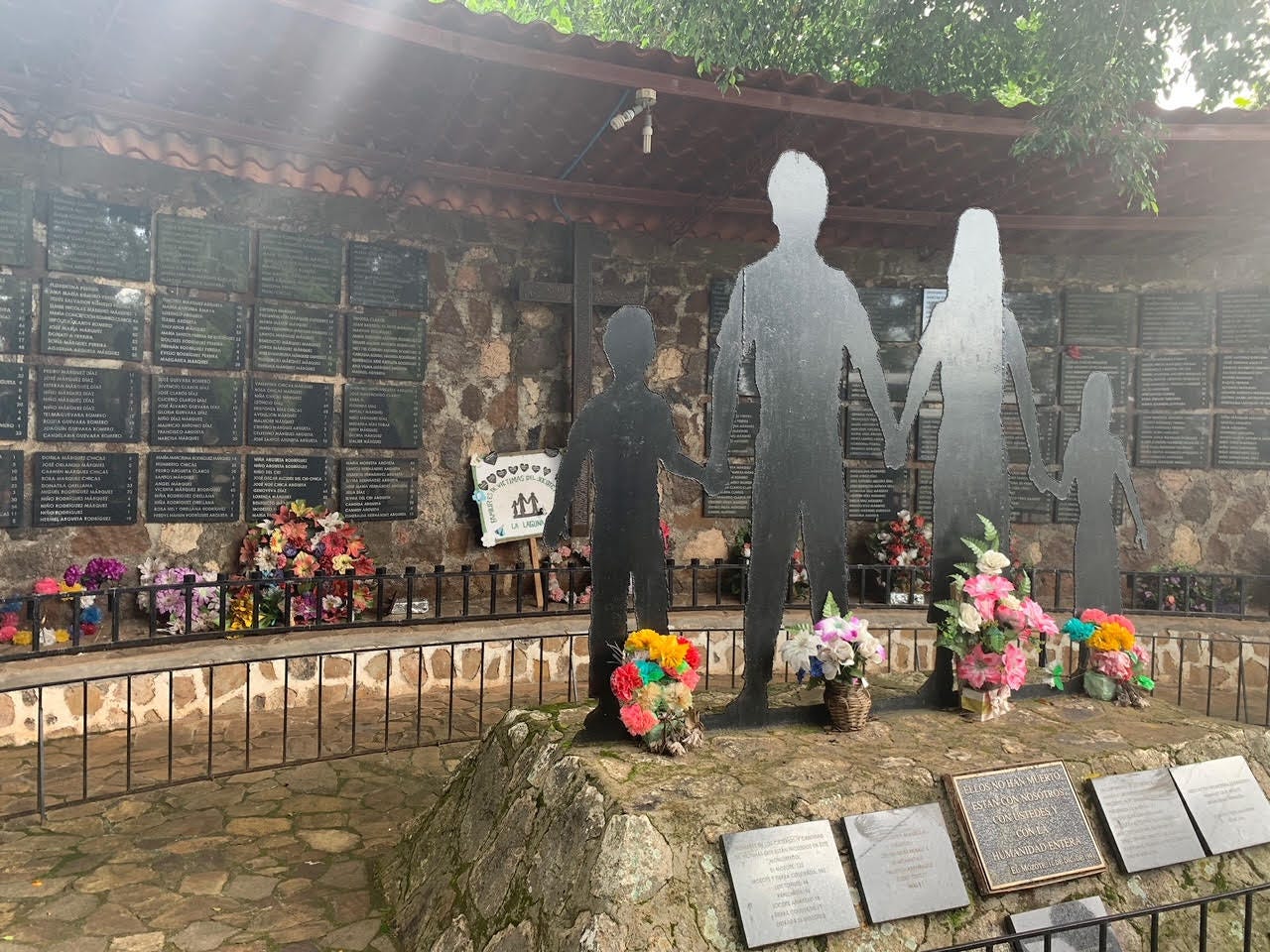Mother's Day Series: Loss and Birth Under Fire in El Salvador
Dispatches on Mothers in Crisis and Conflict
El Salvador
Sunlight spills across a solitary mango tree, standing quietly by the sleepy streets, nestled within the rugged, history-steeped mountains of El Salvador’s Morazán department, just over one hundred miles from the bustling capital of San Salvador.
Beneath the tree that continues to generate life, the murdered and mutilated remains of twenty-four members of Maria del Rosario Lopez’s family are buried in mass graves, their lives lost during the country’s civil conflict more than forty years ago.
“Others we never found,” Maria says softly.
Still radiant with her silver-dipped hair, soulful brown eyes, and the warmth of a mother’s embrace, Maria was born in the late 1940s, just down the road from the resilient mango tree. She grew up with a deep work ethic, supporting her family with whatever they could cultivate or create. At 32, Maria was a devoted mother, living a simple life of sewing and nurturing her children—until, one night, that world shattered, and everything she knew was turned upside down.
El Salvador’s political tensions had been brewing for decades, as deep social inequality and an entrenched oligarchy left the majority of the population struggling in poverty. The ruling elite, backed by a powerful military and supported by the United States during the Cold War, maintained a system that heavily favored the wealthy, while the poor were subjected to systemic injustice, landlessness, and political repression. In the 1970s, as political unrest and demands for reform grew, left-wing movements gained momentum, calling for land redistribution, labor rights, and greater political freedoms.
The tipping point came in March 1980, when Archbishop Monsignor Oscar Romero, an outspoken advocate for the poor and critic of government violence, was assassinated by a hired assassin connected to the Salvadoran military and right-wing death squads that opposed Romero's vocal advocacy for the poor and his condemnation of the violence and repression carried out by the government.
Romero had also appealed to the United States to stop financing his country’s military, whose ferocious tactics were used to silence dissent. His death galvanized both the opposition and the government, and what had been simmering political unrest quickly descended into full-scale civil war. The conflict pitted Marxist rebels, who sought to overthrow the government and establish a more just society, against a government determined to maintain its control and eliminate any threat of communist influence. As the war unfolded, civilians were tragically caught in the crossfire, suffering under the violence of both sides.
Maria recalls how the opposition insurgents always came to her door in the rugged ridges of El Mozote, a town encircled by cantons in the lush Morazán department. The would demand corn, beans, and bread, even though they knew she couldn’t feed her own children. The young mother did everything the rebels asked of her on the premise that the commanders would stop trying to forcibly recruit her only son, still a child, into their ranks.
Maria took them for their word.
It was a quiet Sunday morning when she set out to visit her family in a nearby village. Maria’s husband had gone down to the river for a bath, they were too poor for running water, and it was during this moment of peace that the guerrillas stormed their home, forcibly taking her fourteen-year-old son, Eugenio, to their training camp.
“I dropped all my stuff and went running for him. I climbed up this big hill, and I saw the guerillas had rounded up some boys, including my son, in a field. I begged the commander; I reminded him how for two years I had given them food when I had none so they would not take away my only son and how he had broken our agreement,” Maria tells me, tears dripping into a tea towel and pulling at chunks of her shimmering hair. “But (the Commander) told me Eugenio could not leave; those wars were not won with bread and corn, that it will be won with the farmers taking arms and fighting back.”
Maria’s voice trembled as she turned to her Eugenio, her words thick with desperation: “When you get the chance, run and desert the army to save yourself.” But his reply struck her like a stone, unyielding and resolute: “If I leave, they’ll come and kill all of you.”
Amidst the mounting fear, others in their sleepy mountain village began to flee on foot. Maria stayed. Her resolve rooted her in place, unshaken by the rising tide of violence. “I only had one son,” she declared, her voice sharp with defiance, “I would not leave without him.”
Maria held her breath, waiting for news of Eugenio as the fighting outside her windows grew more violent with each passing day. The relentless stress of those harrowing months caused multiple miscarriages, one of which was a near-term stillbirth that almost claimed her life—yet, in a strange twist, it became the catalyst for her survival…




